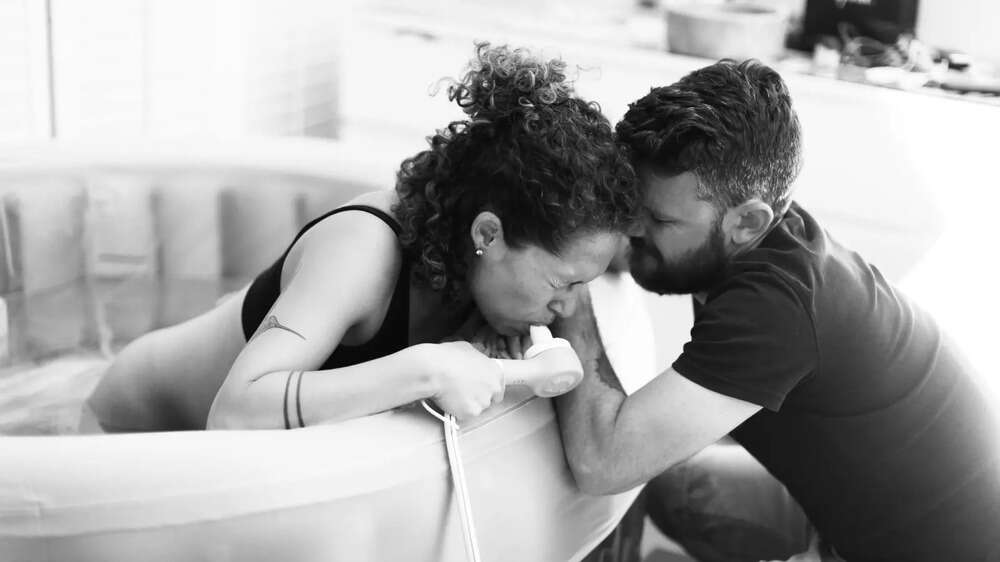
Is It Normal to Be Scared of Labour Pain Before Delivery?
The fear of labour pain is one of the most common anxieties in late pregnancy. Whether it’s your first delivery or you’ve been through it before, the anticipation of pain, uncertainty around how long it’ll last, and the pressure to be “strong” can trigger very real distress. In India, cultural silence around pain often prevents open conversations, making this fear feel even more isolating.
Why Fear of Labour Pain Is So Common
Fear of labour, technically called tocophobia when severe, is present in varying degrees in 60%–80% of pregnant women. Around 20% report significant fear that affects their wellbeing or birth choices. In many Indian households, details about childbirth are often withheld, allowing fear to grow in silence.
- Not knowing how much pain there will be or when it will start
- Fear of tearing, stitches, or prolonged pushing
- Fear of losing control or needing emergency intervention
- Worrying about pain tolerance, especially without an epidural
- Pressure to appear calm and composed, especially in joint-family settings
How Labour Pain Fear Affects the Body and Birth
- Increased muscle tension: Fear tightens the body, making contractions feel more intense and slowing dilation.
- Slower labour progression: Stress hormones like cortisol can interfere with oxytocin, which promotes contractions.
- More pain perception: Fear and anxiety can lower pain thresholds.
- Higher chance of interventions: Women with high fear levels may request early epidurals, opt for C-sections, or feel less satisfied with their experience.
Factors That Influence Labour Pain Anxiety
- First-time pregnancy: Not knowing what to expect heightens anxiety.
- Traumatic previous birth: Past pain or complications create anticipatory fear.
- Anxiety or depression: Pre-existing conditions amplify fear.
- Limited childbirth education: Lack of clear, science-based information increases helplessness.
- Cultural silence: Childbirth is rarely discussed openly in many families.
- Social or family pressure: Fear of being judged as “weak.”
How Fear Is Diagnosed or Recognised
Mild to moderate fear is normal, but when overwhelming, it may present as:
- Avoiding conversations about labour altogether
- Constant searching for “pain-free birth” options
- Insisting on a C-section solely due to fear
- Sleeplessness, panic attacks, or crying spells near the due date
- Trouble bonding with pregnancy due to dread of delivery
Some antenatal programs now use tools like the Wijma Delivery Expectancy Questionnaire (W-DEQ) to screen for high levels of childbirth-related fear.
What Helps: Pain Relief Options, Support, and Preparation
- Epidural: Widely available in urban hospitals; effective but may limit mobility.
- Entonox (gas and air): Available in limited hospitals; offers mild relief.
- IV medications: Sometimes used early in labour.
- Non-medical techniques: Breathing, water immersion, massage, hot packs, and movement can ease discomfort.
- Birth classes: Learn stages of labour, breathing, and hospital protocols.
- Birth planning: Discuss pain relief, positions, and preferences in advance.
- Prenatal yoga and meditation: Enhance body awareness and regulate stress responses.
Practical and Emotional Support for Labour Fear
- Talk to your gynaecologist early—make a plan together.
- Build a supportive birth team (partner, parent, friend, or doula).
- Avoid unhelpful or scary stories that heighten anxiety.
- Practice self-talk: It’s okay to be afraid and still strong.
- Seek therapy or counselling if fear feels overwhelming.
Being scared of labour doesn’t mean you’re weak—it means you care and want to prepare. Pain in labour is real, but so is your ability to cope with the right support.
FAQs
Yes. Fear triggers stress responses that tighten muscles and reduce pain tolerance.
In private hospitals and some government facilities, yes. Always check availability with your hospital.
It’s more common than you think. Talk to your doctor about the risks and benefits.
Pain tolerance is not fixed. With preparation and support, many women surprise themselves with their strength.
"Fear in labour doesn’t make you weak—it makes you human. With the right care, you can face it with strength."
— Dr. Pooja Thukral



